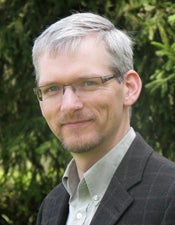Seeking Peace as the End of Lament

Professor Derek Suderman will be presenting this year's Eby Lecture.
The Christian tradition has long been uncomfortable with the articulation of lament. For some, Jesus’ call to love enemies is even seen as a rejection of this genre, given the prominence of violent wishes or imprecations against enemies found within it. Over time praise and confession have come to dominate the liturgical experience of many worshipping communities, while lament has largely disappeared.
While the Christian Bible anticipates an end to crying, tears, and pain (Rev. 21), it is worth considering the “end of lament” in a different sense; ie: what is the “end”, as in purpose or goal, of lament? Rather than fostering a spirit of vindictiveness or vengeance, at its most basic lament claims that things “are not right in their present arrangement” (Brueggemann) and calls for, even demands, change; in effect, the end of lament is to seek peace in its broad sense of communal shalom. Far from a rejection of lament, the Sermon on the Mount and Jesus’ own life underscore its ongoing significance. In the end, lament psalms confront Christian communities with contemporary brokenness and pain, challenging them to attend to such cries as calls to seek shalom. Are we listening?
Derek Suderman has received Bachelor degrees in theology (BTh, Canadian Mennonite Bible College, 1993), history (BA, Hons., PACS option, University of Waterloo, 1996), and education (BEd, Brock University, 1997), a Master’s degree in theology (MTS, Conrad Grebel University College, 2000), and a doctorate in Bible (PhD, University of St. Michael’s College, 2007). Derek's dissertation demonstrated that most individual lament psalms directly address people as well as God, and focused on the implications of such 'social address' for our understanding of prayer. Before coming to Grebel Derek taught courses in Old Testament and Biblical Hebrew at Emmanuel College (TST).